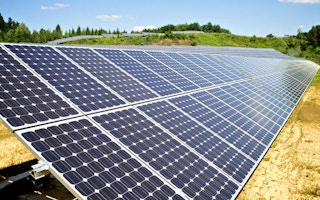While it is crucial to provide social safety nets for vulnerable communities to cope with temporary economic shocks, Malaysia cannot afford to lose sight of environmental sustainability due to the ongoing threat of climate change.
With the recent call from the United Nations (UN) Secretary-General António Guterres to “make peace with our planet” during the UN’s 75th anniversary on 24 Oct, it is time for Malaysia to reset its development agenda by strengthening green recovery efforts while saving more lives and livelihoods.
Even before Covid-19, the world faced immense challenges in the fight against climate change. As human activities continue to emit heat-trapping greenhouse gases (GHG) to the atmosphere, not only does it result in an increase in average temperatures by over 1 degree Celsius, but also extreme weather events such as heatwaves, droughts and torrential rains.
Till today, Malaysia remains vulnerable to the threat of floods, landslides, haze and water pollutions. In the last two decades, the country has experienced 51 natural disaster events, causing the death of 281 people, affecting over 3 million people, and racking up nearly US$2 million (RM8 billion) in damages.
The frequent water disruption in the Klang Valley and floods in several states of Malaysia such as Kuala Lumpur, Negeri Sembilan, Kelantan, Johor, Sarawak and Sabah during the Covid-19 pandemic also further devastated many lives.
As the water disruptions and floods provide negative implications to the citizens’ livelihood during this health crisis, the recent Pew Research Centre’s International Science Survey 2019-20 showed that around seven in 10 Malaysians place more priority on environmental protection, even if it comes at the expense of economic growth and the creation of more job opportunities.
The latest survey findings from HSBC also revealed more than nine out of 10 Malaysian businesses agreed the need to re-assess or review their operations to rebuild their business on firmer environmental foundations.
However, it is relatively challenging for Malaysia to move towards green recovery as according to the Green Economy Tracker, over 90 per cent of Malaysia’s electricity comes from fossil fuels. Malaysia is also well-known as the world’s third largest exporter of liquefied natural gas and the second-largest exporter of palm oil.
Although Malaysia is seriously lagging behind on environmental protection, energy transition and decarbonisation, the current administration has displayed its commitment towards a green recovery by allocating funds for the sustainable development agenda in the Budget 2021 for the first time.
The following are some of the initiatives introduced by the government under Budget 2021:
- Cooperate with the UN to establish the Malaysia-SDG Trust Fund or MySDG Trust Fund. The fund will coordinate financing from various public and private sources systematically. Thus, various parties can contribute and be involved in efforts to ensure that the sustainable development goals (SDGs) are achieved by 2030.
- Issue the first Sustainability Bond in Malaysia for environmental and social initiatives in 2021.
- To further encourage the issuance of Sustainable and Responsible Investment (SRI) products and bonds that achieve green, social and sustainable standards in Malaysia, the existing income tax exemption for SRI green sukuk grant is extended to all types of susuk and bonds and this exemption is extended until 2025.
- Continue the Green Technology Financing Scheme 3.0 (GTFS3.0) for two years up to 2022 which will be guaranteed by Danajamin to encourage the issuance of SRI sukuk.
- Provide over a period of five years to strengthen environmental quality monitoring enforcement activities including the establishment of 30 monitoring stations nationwide.
- Increase the allocation under the Economic, Infrastructure and Welfare Development-Based Grants (TAHAP) to all State Governments from RM 350 million in Budget 2020 to RM 400 million. Of this amount, a total of RM70 million is also allocated for the purpose of Ecological Fiscal Transfer Activities as an additional incentive to the State Government to ensure the sustainability of the country’s biodiversity.
- Implement mangrove tree planting programmes to preserve mangrove swamp areas and other tree species along the coast including Tanjung Piai, Johor and Kuala Sepetang, Perak.
In addition, to align with the latest development and future needs of the country, the government should review existing policies and legislations such as the National Forestry Policy 1978 (revised 1992), National Forestry Act 1984, National Policy on the Environment 2002 and National Water Resources Policy 2012. Strong enforcement of rules and regulations are needed to ensure wider compliance with environmental standards.
The government could also encourage industrial players to use renewable energy instead of fossil fuels by providing small grants – the way forward towards building a more sustainable green future.
Meanwhile, education on sustainable development should be implemented in schools, institutions of higher education and teacher training centres to promote a better understanding of environmental issues towards inculcating a sustainable lifestyle.
Moreover, the government needs to support sustainable infrastructure and reimagine sustainable cities that are fit-for-purpose in the post-Covid-19 world. These include optimising demand-side management (DSM) for energy, encouraging low-carbon mobility and promoting the construction of green buildings.
Adopting sustainable consumption and production concepts, and focusing on better waste management towards a circular economy would reduce GHG emissions. This in turn would stimulate economic regrowth, improve resource efficiency, minimise pollution and increase resilience to recurrent zoonotic threats and natural disasters.
By restoring the balance between people and planet, more green and decent jobs can be created, ecotourism and green transport systems can be formed and supply chains for green products can be generated in Malaysia.
Amanda Yeo is Research Analyst at EMIR Research, an independent think tank focused on strategic policy recommendations based on rigorous research.


















